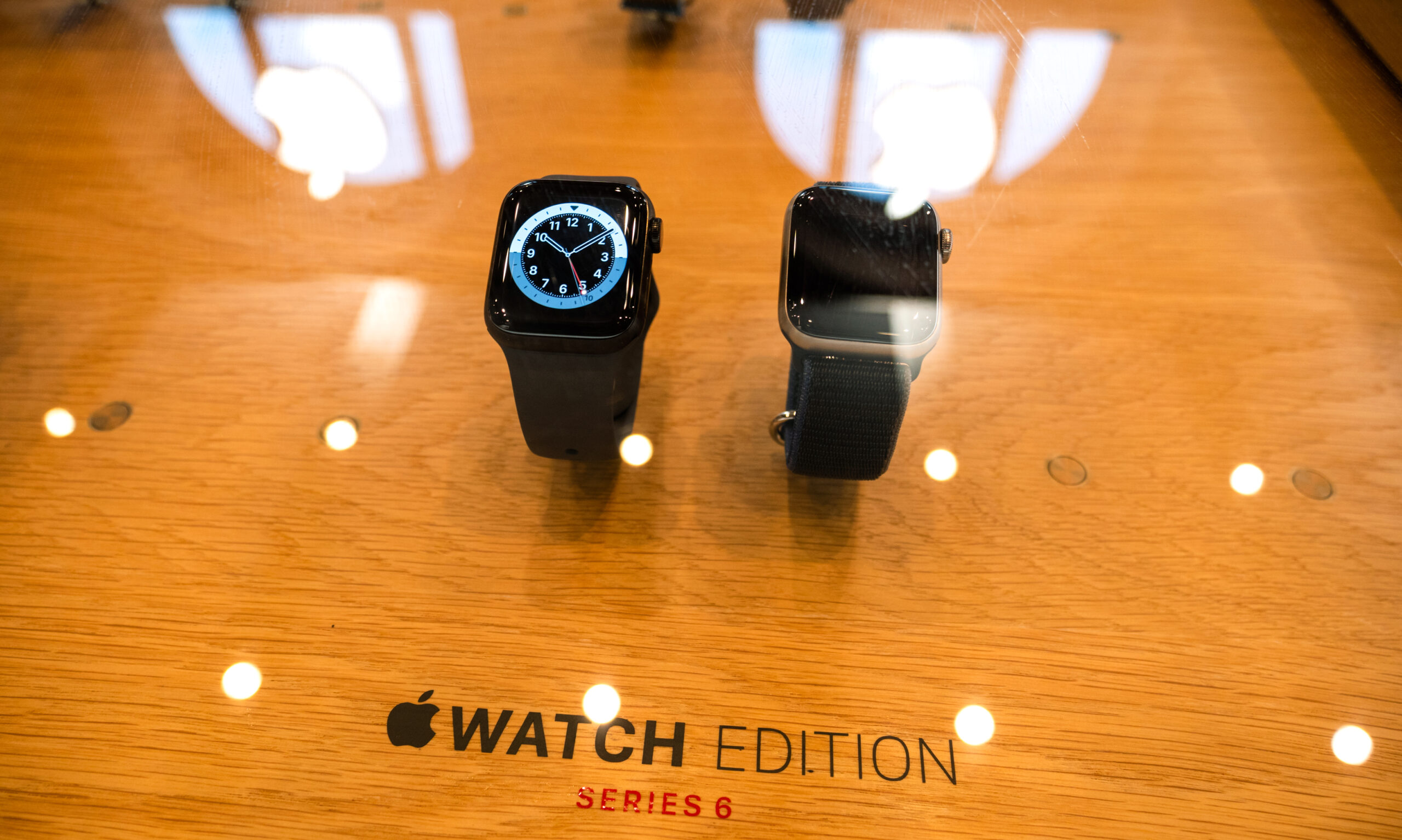 Apple confirmed to media outlets on Monday that it will halt sales of certain Apple watches following the October International Trade Commission (ITC) ruling issuing a limited exclusion (LEO) order against the products.
Apple confirmed to media outlets on Monday that it will halt sales of certain Apple watches following the October International Trade Commission (ITC) ruling issuing a limited exclusion (LEO) order against the products.
In its October ruling, the ITC found Apple violated section 337 by importing Apple Watches that infringed on two Masimo patents that covered technology related to reading blood-oxygen levels.
In January, the ITC issued a Notice of Final Initial Determination (FID) finding that Apple violated Section 337 of the Tariff Act of 1930 by importing and selling in the United States Apple Watches with light-based pulse oximetry technology that infringed claims 24 and 30 of Masimo’s U.S. Patent No. 10,945,648. However, the administrative law judge (ALJ) in the FID found that Apple had not violated Section 337 as to claim 12 of U.S. Patent No. 10,912,501, claims 22 and 28 of U.S. Patent No. 10,912,502, claim 12 of the ’648 patent, claims 9 and 27 of U.S. Patent No. 10,687,745, and claim 9 of U.S. Patent No. 7,761,127.
In Masimo’s complaint filed June 29, 2021, the company claimed that Apple first met with Masimo in 2013 about integrating Masimo’s technology into the Apple Watch and subsequently “began hiring Masimo employees, starting with Masimo’s Chief Medical Officer. In the Fall of 2020, Apple introduced the Series 6, manufactured in Asia.” The sale and importation of the devices infringed Masimo’s patents as well as incorporated Masimo’s trade secrets, which the parties are litigating separately, according to the complaint.
Further, Masimo argued banning the Apple Watch would not harm public health or welfare because the Apple Watch blood oxygen measurements are actually not reliable and “[s]ome have even observed that the inaccurate physiological measurements of the Series 6 watch endanger public health.”
Pulse oximeters became popular during the COVID-19 pandemic as a way of remotely monitoring patients’ blood oxygen levels. Masimo has also released its own wearable device, the Masimo W1™, which it says is “the first wearable device on the market to provide consumers with accurate, continuous health data, including oxygen level, hydration index, and pulse, heart, and respiration rates.”
Although Apple commented at the time of the October ITC ruling that “Masimo has wrongly attempted to use the ITC to keep a potentially lifesaving product from millions of U.S. consumers while making way for their own watch that copies Apple,” reports on Monday indicated the company will halt sales of the Apple Watch Series 9 and Apple Watch Ultra 2. According to CNN, Apple explained that it is “preemptively taking steps to comply should the ruling stand.”
The period of presidential review during which President Biden could veto the ITC’s judgment ends December 25. Apple has said it will appeal to the U.S. Court of Appeals for the Federal Circuit.

![[IPWatchdog Logo]](https://ipwatchdog.com/wp-content/themes/IPWatchdog%20-%202023/assets/images/temp/logo-small@2x.png)

![[Advertisement]](https://ipwatchdog.com/wp-content/uploads/2024/04/UnitedLex-May-2-2024-sidebar-700x500-1.jpg)
![[Advertisement]](https://ipwatchdog.com/wp-content/uploads/2024/04/Patent-Litigation-Masters-2024-sidebar-700x500-1.jpg)

![[Advertisement]](https://ipwatchdog.com/wp-content/uploads/2021/12/WEBINAR-336-x-280-px.png)
![[Advertisement]](https://ipwatchdog.com/wp-content/uploads/2021/12/2021-Patent-Practice-on-Demand-recorded-Feb-2021-336-x-280.jpg)
![[Advertisement]](https://ipwatchdog.com/wp-content/uploads/2021/12/Ad-4-The-Invent-Patent-System™.png)






Join the Discussion
2 comments so far.
mike
December 20, 2023 05:19 pmApple has shown intentional irresponsibility in this quest. To comment that “Masimo has wrongly attempted to use the ITC to keep a potentially lifesaving product from millions of US consumers” shows their arrogance and carelessness.
Apple sells and markets a product as a health monitor to the public, yet Apple did not obtain FDA approval nor proper licensing from Masimo for the product they sell. This is akin to selling a house as your own without title rights to sell the house, which is fraudulent.
It is Apple, not Masimo, who has wrongly betrayed the trust of the consumer by selling their product without first seeking to ensure it was proper licensed, which not doing so put Apple’s consumers at risk if Apple were found guilty of infringement for not having a license and thus falling under an exclusion order, as is what exactly has played out.
Apple’s cutting of corners on a product they market as “potentially lifesaving” should raise concerns. If you need a definition of what efficient infringement is, how Apple has disrespected Masimo’s patents and IP rights here provides a good example of what that is. Apple needs to change course and start respecting inventors.
Pro Say
December 18, 2023 07:29 pm“We respect the intellectual property of others.”*
— Apple
*Just not until a court or the ITC forces us to do so, of course.